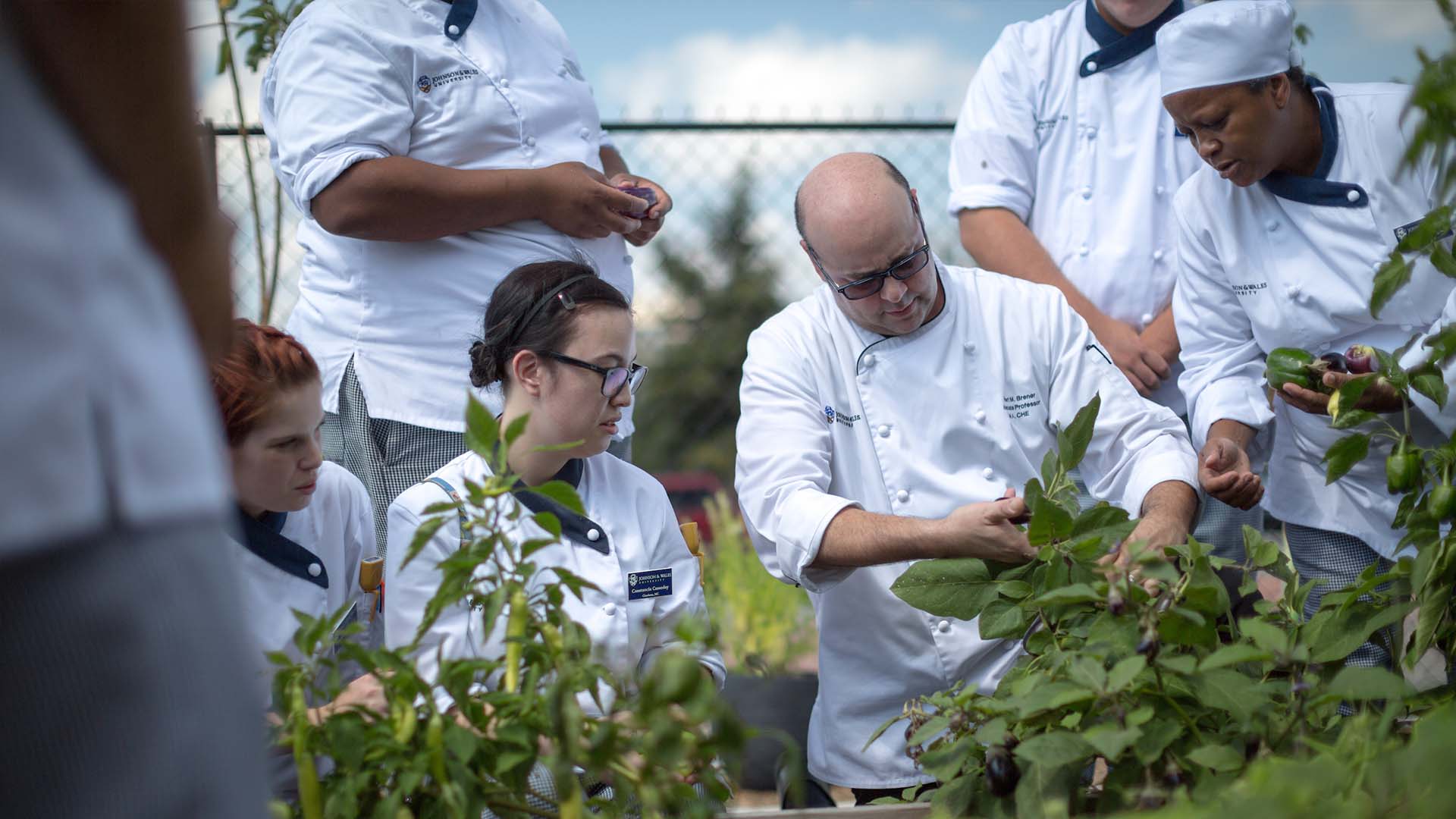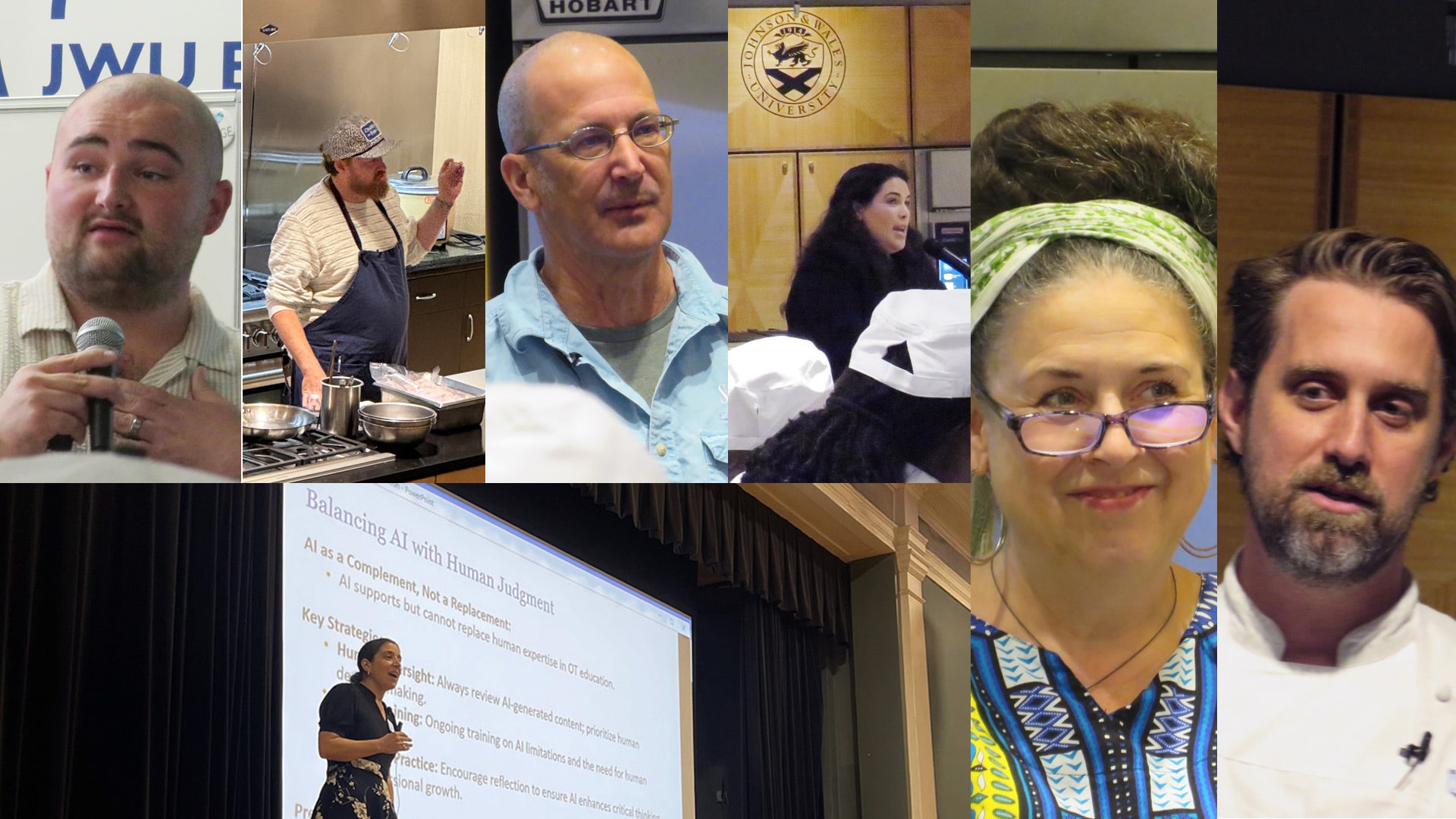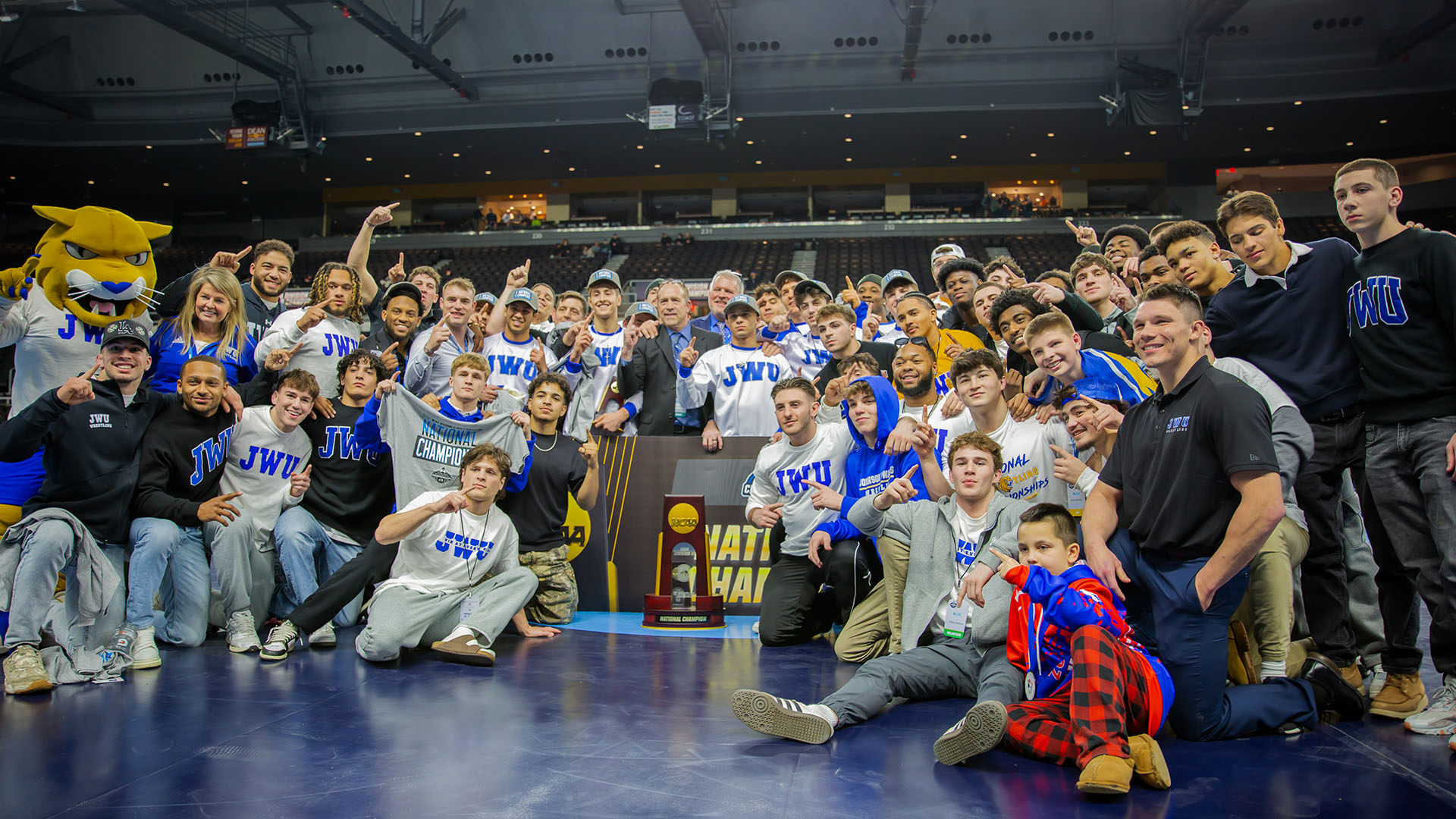Fueling Futures: JWU’s Culinary Nutrition Program Is Nourishing Communities Through Hands-On Learning
Addressing Urgent Challenges in Nutrition and Food Systems
Food insecurity, food deserts, nutrition, sustainability and health aren’t just buzzwords—they represent real challenges and opportunities for change. At Johnson & Wales University (JWU), the Culinary Nutrition program is preparing the next generations of food professionals to meet these challenges head-on.
The Power of Practical Experience
Blending hands-on theoretical nutrition science and practical culinary applications, JWU students gain real world experiences that extend well beyond the classroom. They’re exploring how food choices impact not only individual health, but also the sustainability of our communities and the world around us.
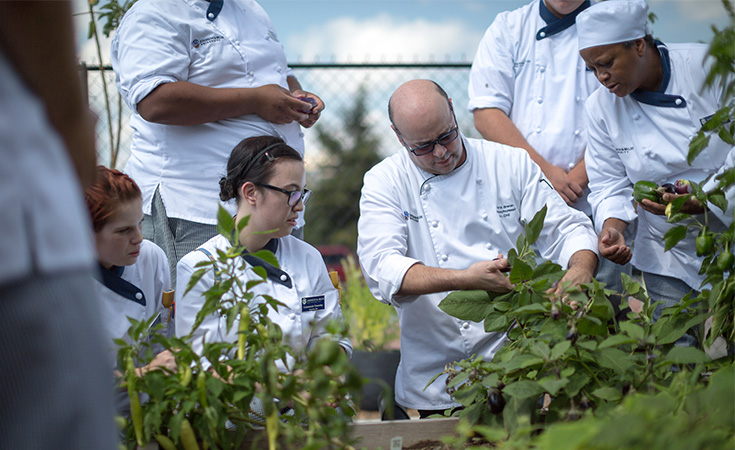
A Focus on Tailored Nutrition Care
“I teach students to meet people where they are and recognize their own biases. Nutrition is not one-size-fits-all. Considering each person’s values, beliefs, and lived experiences—even when they differ from your own—is critical,” explains College of Food Innovation & Technology Assistant Professor Leslie Van Horn, DCN, RDN, LDN, FAND. Van Horn’s students are echoing these sentiments, relaying how nutrition has allowed them to feel more connected to people and the community. “This degree has shaped my perspective - it has really hit me in the softest of spots. I want to help people in need because if the tables were turned, I’d want the same,” shares Jerell “Ken” Hughes ’25, a culinary nutrition major from Elizabeth City, North Carolina.
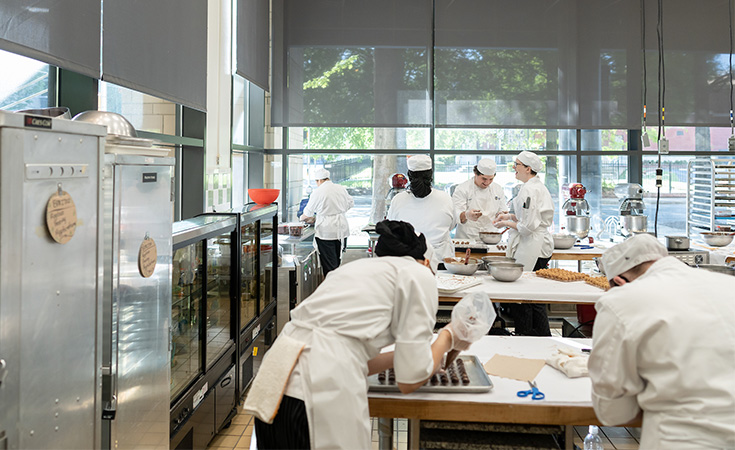
Connecting Food and Performance
In the university’s hands-on Therapeutic Cuisine course students learn how to prepare heart-healthy, low-sodium meals or high-protein dishes for people with chronic conditions like cardiovascular disease, diabetes or cancer.
A similar approach is used in the Athletic Performance Cuisine course where JWU Culinary Nutrition students and athletes collaborate to design meals that support training and recovery. “It's a mutually beneficial partnership,” shares Associate Professor Genny Komar, Ph. D, RD, LD, FAND, CC. “Students gain real-world experience in athlete-centered menu planning and athletes benefit from targeted nutrition support.”
Flavor Meets Function
“One of the key lessons I try to instill is that nutritious foods can also be delicious,” Komar continues. “Eating well shouldn’t compromise flavor or satisfaction. We want students—and their future clients—to crave healthy meals.”
Throughout JWU’s culinary labs, students experiment with ingredients and techniques using nutrition software to ensure meals meet health targets. “This kind of creative problem-solving is essential for today’s diverse food and nutrition careers,” share Associate Professor Daina Soto.
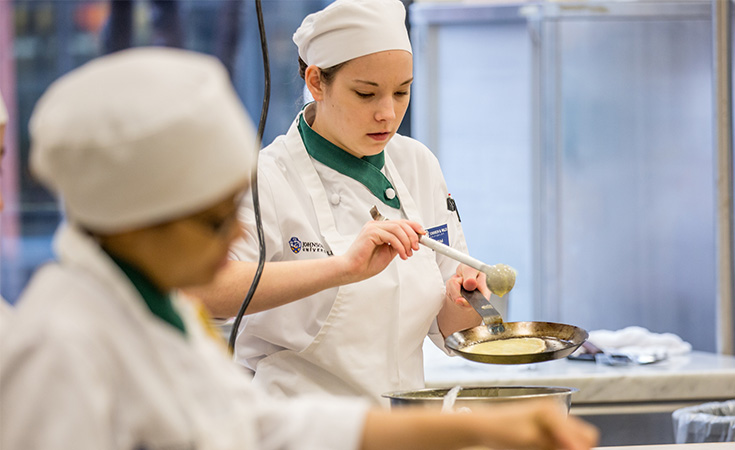
Community Nutrition in Action
Beyond campus, students are involved with real-world service courses like Lifespan Nutrition and Community Nutrition with organizations like The Bulb and Nourish Up. They create recipes, host workshops and advocate for better food access—all while gaining experience that builds leadership and empathy. These initiatives are part of JWU’s teaching kitchen, which aims to provide nutrition and culinary education to promote public health in Charlotte. In 2024, both JWU campuses joined the Teaching Kitchen Collaborative, a global network of teaching kitchens, to increase our presence as a resource for community-based culinary nutrition education and provide more experiential learning opportunities.
“One thing I didn’t expect is the widespread food insecurity and food deserts in the U.S., and how many people can’t afford nutritious food, even in a developed country. It’s crazy to know and interact with people that are struggling in this capacity. In the same breath its heartwarming to work side by side with others to help these individuals,” shares Hughes.
“I didn't expect to learn about the public policies that are involved in bettering community nutrition, which has grown my interest in advocating more for better food systems. Understanding the disparities of health at all levels makes me more knowledgeable of ways I can impact the foodservice industry,” shares Denise Diaz ’26, a culinary nutrition major from Seattle, Washington.
Students also complete internships and community service hours, developing educational materials, writing advocacy letters, and engaging in public policy. “Seeing so many people, especially kids, excited about nutrition and open to learning gave me hope. It made me believe we can tackle major health issues like obesity, diabetes and hypertension in my own community. Being surrounded by people with so much experience in nutrition and culinary arts, I soaked up everything like a sponge. I was in awe of how naturally it all came to them,” shares Hughes when talking about his internship with Nutrition HealthWorks and volunteering with Community Matters Café.
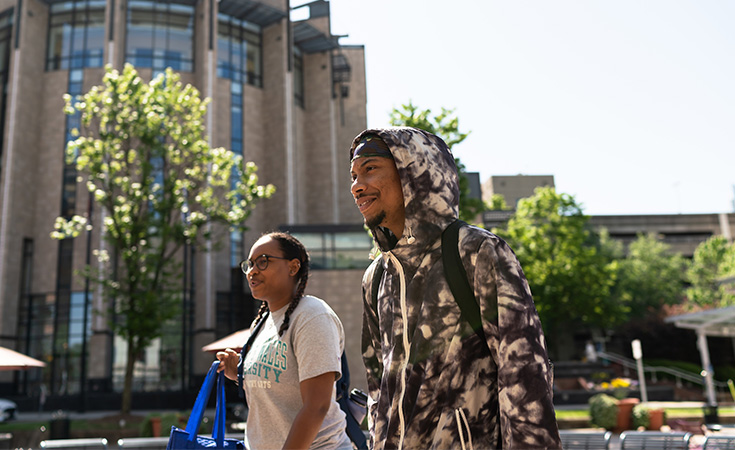
Curriculum Evolution: Staying Ahead of Trends
To stay ahead of trends, JWU’s curriculum continues to evolve. JWU Charlotte has added greater emphasis on plant-forward cuisine, sustainability and global nutrition perspectives. The goal is to ensure graduates are not only academically competent but also future-ready in an evolving food landscape.
“With the growing demand for plant-based products, there is an increasing need for professionals who can combine culinary creativity with nutritional expertise. That’s why I emphasize careers in food product development and roles such as research chefs, where students can leverage their culinary skills and nutritional knowledge to create innovative food solutions,” shares Soto.
Preparing Future Advocates for Food and Nutrition
